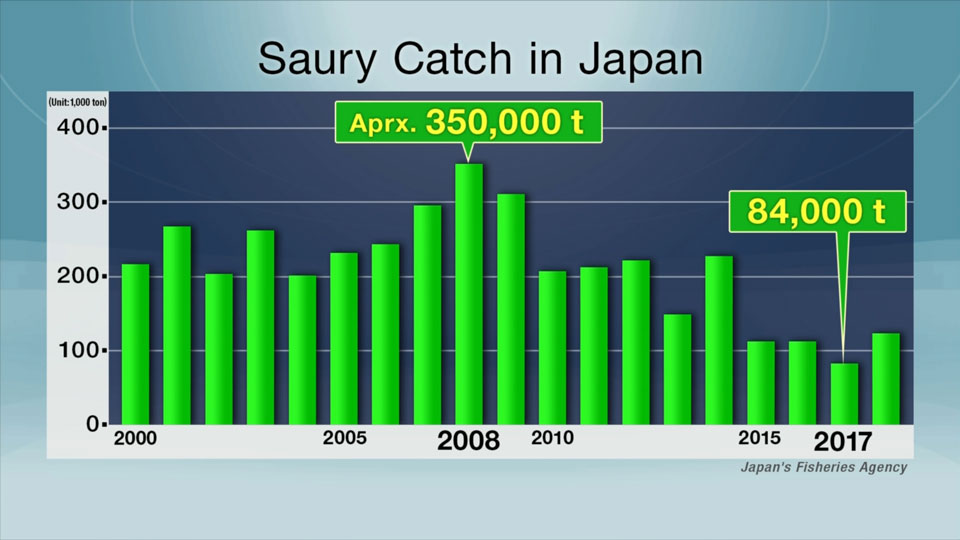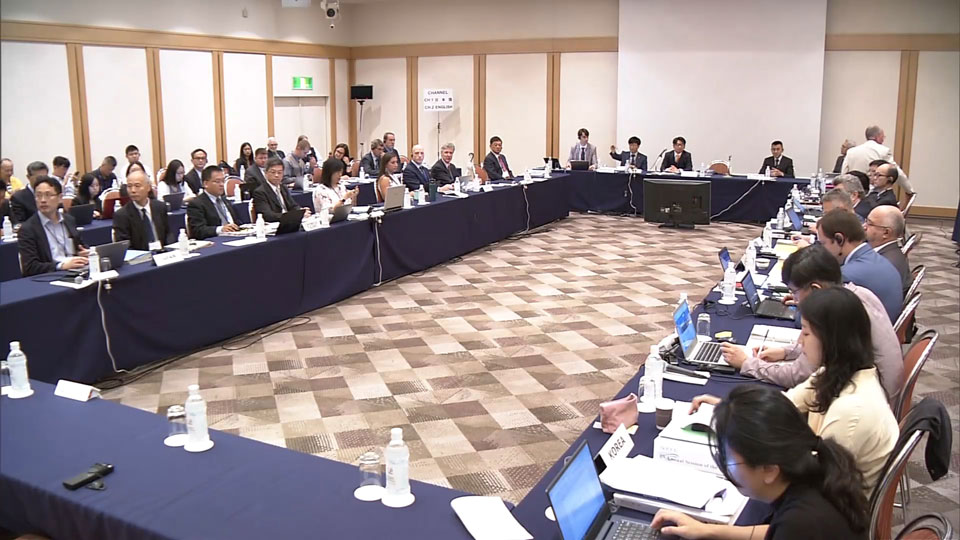Saury catches in Japan have fallen significantly in recent years. In 2008, fishermen hauled in approximately 350,000 tons of the glistening silver fish. But the figure dropped to 84,000 tons in 2017, the lowest level in half a century.
Some experts say a warming ocean is to blame. Others point to increased saury catches in other parts of Asia including China, where diners are developing an appetite for the fish.

In China, people enjoy eating saury because they say it has few bones and is healthy. Grocery stores sell the fish year-round.
Saury's popularity is even bigger in Taiwan. Last year, the territory's haul amounted to 178,000 tons, or about 40 percent more than what Japan brought in. Taiwan's authorities even promote saury. Officials say it's a growing industry and are calling on people to consume more.

Rising demand has prompted Japan to propose a quota on how much saury countries and territories can catch.
The talks held in Tokyo by the North Pacific Fisheries Commission brought together eight economies: Japan, Canada, China, Russia, South Korea, Taiwan, Vanuatu and the US.
A Commission report on the first scientific estimates of Pacific saury stocks said levels over the past three years have been about 20 percent below optimum.

The move to set quotas failed at the last two conferences. At those meetings, China and other members claimed there was a lack of data. But this time, the largest opponent China changed its stance.
The delegates agreed to cap the combined catch next year for all Commission members at about 556,250 tons. This is above last year's total of about 437,000 tons. The generous quota appears due to a desire by participants to at least reach a consensus, rather than ending the meeting with nothing to show for it.
The delegates also placed a cap of 330,000 tons on saury catches on the high seas. Ships from China and Taiwan regularly fish these waters.

Takashi Koya, director-general of the Resources Management Department of Japan's Fisheries Agency, said the government is not fully satisfied with the result, but called it a step in the right direction.
Koya added that countries other than China have come to accept the need for control as they understand the fishing grounds are less and less productive. He says the shift among those members may have pressed China into making a concession.
Catch quotas for each Commission member will be discussed at a meeting next year.

